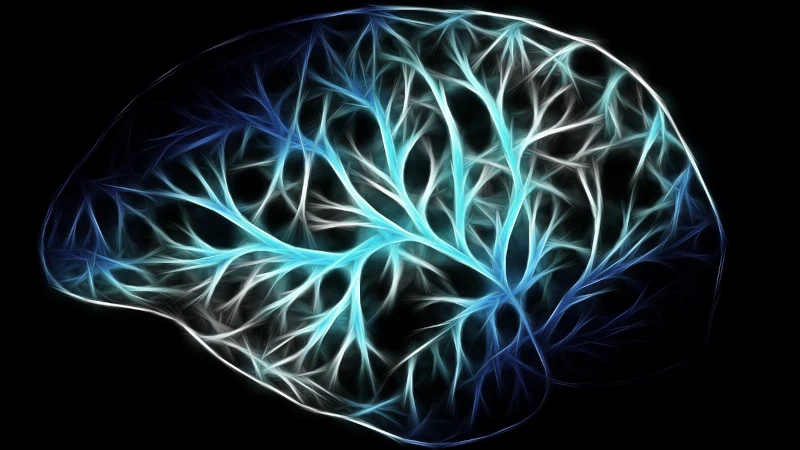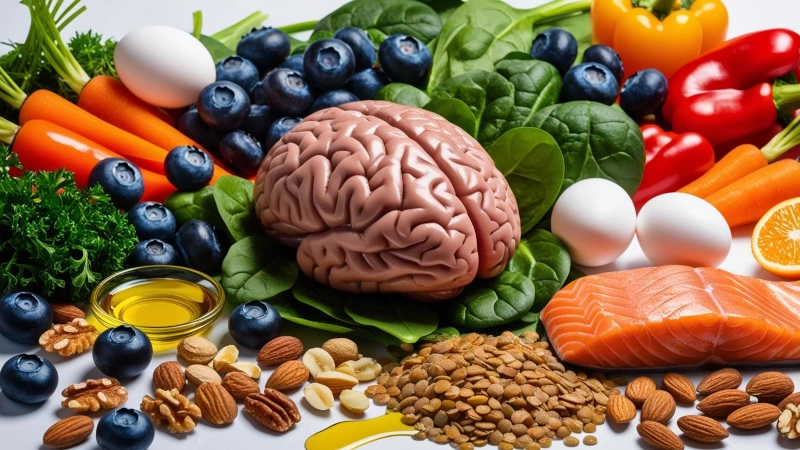Written by: Julie Rafferty
As scientists seek to unravel the intricate potential connections between nutrition and the aging brain, a new study from researchers at the Jean Mayer USDA Human Nutrition Research Center on Aging (HNRCA) at Tufts University is shedding light on how insufficient consumption of vitamin K may adversely affect cognition as people get older.
The study, conducted in middle-aged rodents, suggests that a lack of vitamin K may increase inflammation and hamper proliferation of neural cells in the hippocampus, a portion of the brain that is capable of generating new cells and is central to functions such as learning and memory.
Vitamin K is found in green leafy vegetables such as Brussels sprouts, broccoli, green peas, kale, and spinach. It is already known to play an essential role in blood clotting, and research suggests it may also have positive effects on cardiovascular health as well as joint health, says Sarah Booth, director of the HNRCA and senior author of the study. Booth is also a professor at the Gerald J. and Dorothy R. Friedman School of Nutrition Science and Policy at Tufts University.
“There is also research that indicates vitamin K contributes to brain function and that brain function declines during the aging process,” says Tong Zheng, lead author of the study and a research scientist at the HNRCA. “Vitamin K seems to have a protective effect. Our research is trying to understand the underlying mechanism for that effect, so that we might one day be able to target those mechanisms specifically.”

Learning and Memory Affected
In the new research, published in the Journal of Nutrition, researchers conducted a six-month dietary intervention to compare the cognitive performance of mice that were fed a low-vitamin K diet and those receiving a standard diet.
The research team focused on menaquinone-4, a form of vitamin K prevalent in brain tissue, and found significantly lower levels of this nutrient in the brains of the vitamin K-deficient mice. This deficiency is associated with noticeable cognitive decline as measured in a series of behavioral tests designed to assess their learning and memory.
In one such test, the novel object recognition test, the vitamin K-deficient mice showed a diminished ability to distinguish between familiar and new objects, a clear indication of impaired memory. In a second test, to measure spatial learning, the mice were tasked with learning the location of a hidden platform in a pool of water. The vitamin K-deficient mice took considerably longer to learn the task compared to their counterparts with adequate vitamin K levels.
When the researchers then examined the mice brain tissue, they found significant changes within the hippocampus, a brain region crucial for learning and memory. Specifically, they observed a reduced number of proliferating cells in the dentate gyrus of the hippocampus in the vitamin K-deficient mice. This decrease translated to fewer newly generated immature neurons, a process known as neurogenesis. “Neurogenesis is thought to play a critical role in learning and memory, and its impairment could directly contribute to the cognitive decline observed in the study,” Zheng says.
Adding another layer of complexity, the researchers also found evidence of increased neuroinflammation in the brains of the vitamin K-deficient mice.
“We found a higher number of activated microglia, which are the major immune cells in the brain,” says Zheng. While microglia play a vital role in maintaining brain health, their overactivation can lead to chronic inflammation, which is increasingly recognized as a key factor in age-related cognitive decline and neurodegenerative diseases.

A Healthy Diet
Both Booth and Zheng emphasize that their research doesn’t mean that people should rush out and start taking vitamin K supplements.
“People need to eat a healthy diet,” says Booth. “They need to eat their vegetables.”
Booth noted that the Tufts team works closely with Rush University Medical Center in Chicago, with the Rush team conducting observational studies in humans of brain health and cognition, while Tufts focuses on models to study specific mechanisms.
“We know that a healthy diet works, and that people who don’t eat a healthy diet don’t live as long or do as well cognitively,” says Booth. “By choreographing animal and human studies together, we can do a better job of improving brain health long-term by identifying and targeting specific mechanisms.”
This study was supported by a cooperative agreement with the USDA Agricultural Research Service, and the Robert and Margaret Patricelli Family Foundation. Complete information on authors and methodology is available in the published paper. The content is the sole responsibility of the authors and does not necessarily represent the official view of the USDA.
The post New Research Deepens Understanding of How Vitamin K Affects Brain Health first appeared in Tufts University’s Newsroom TuftsNow
About Tufts University
Tufts University, located on campuses in Boston, Medford/Somerville and Grafton, Massachusetts, and in Talloires, France, is recognized among the premier research universities in the United States. Tufts enjoys a global reputation for academic excellence and for the preparation of students as leaders in a wide range of professions. A growing number of innovative teaching and research initiatives span all Tufts campuses, and collaboration among the faculty and students in the undergraduate, graduate and professional programs across the university’s schools is widely encouraged.
More on Friedman School of Nutrition Science and Policy at Tufts University




